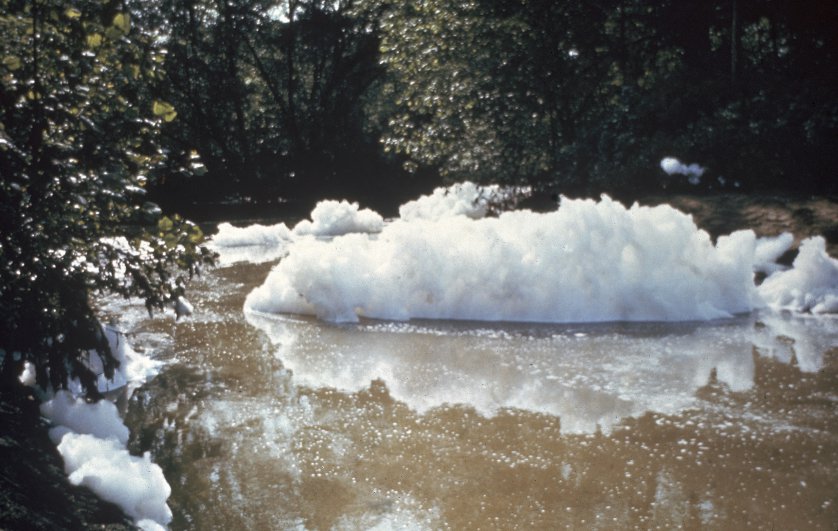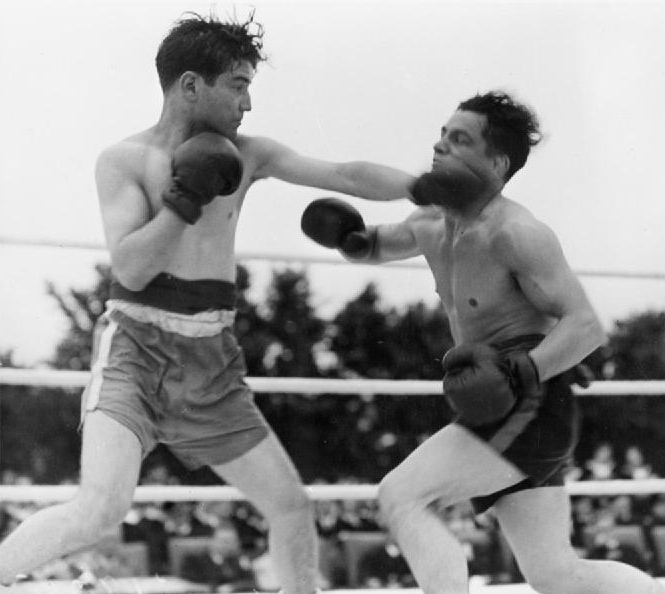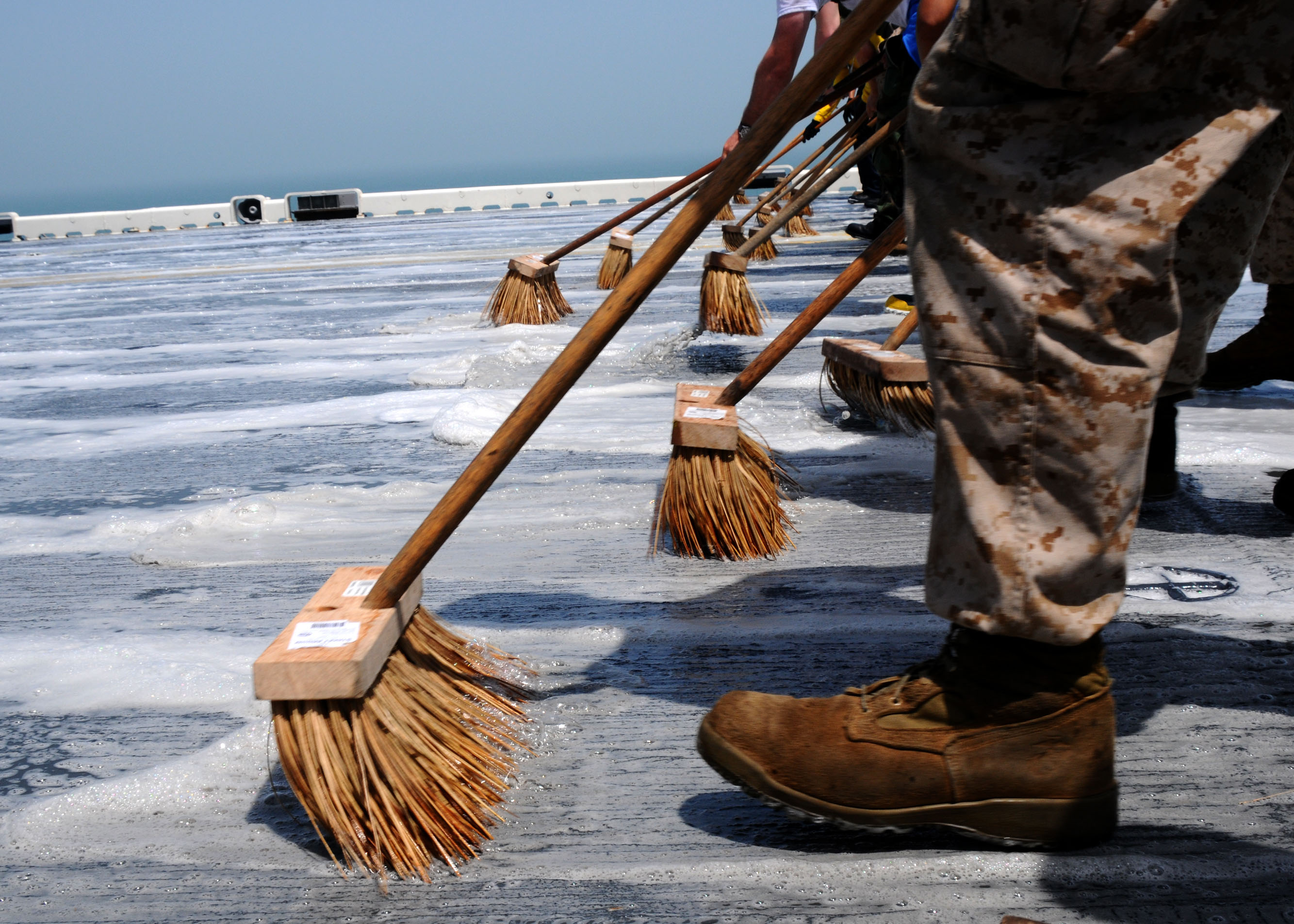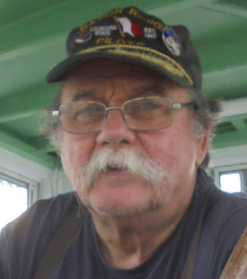The riverboat captain is a storyteller, and Captain Don Sanders will be sharing the stories of his long association with the river — from discovery to a way of love and life. The is the 13th of a long and continuing story.
By Capt. Don Sanders
Special to NKyTribune
The further up the Illinois the AVALON went, and the closer it got to Chicago, the dirtier, darker, and more fetid the river turned; tainted by the waste spilling down the Chicago Sanitation Canal and into the water we were paddling through.
Below the Starved Rock Lock and Dam, grimy soap suds, three to four-feet deep, built-up below the dam caused by the agitation of the falling water. By the time the boat got above Ottawa, crew showers had ceased as the water coming from the shower heads and sinks, and that sloshing around in the toilet bowls became pitch-black and overpoweringly-repugnant. The only house-water filtration aboard the AVALON was a couple of sand filters that initially came from the steamer GORDON C. GREENE when that overnight-packet ceased running after the DELTA QUEEN was bought and replaced it in the overnight passenger-carrying trade. The bulk of the runoff from the metropolis, upriver, overpowered the boat’s primitive filtration system that usually did a passing job of diluting muddy river water into a light-tan tea with a splash of chlorine bleach thrown in to make a show of killing bacteria coliform colonies.

The further up the Illinois the AVALON went, and the closer it got to Chicago, the dirtier, darker, and more fetid the river turned.
By the time the AVALON headed back south, the crew smelled worse than the foul river water. Passing Ottawa, a small sternwheeler, the HUCKLEBERRY, a twin of Captain Fred Way’s LADY GRACE, followed us down the river for a’ ways. Both the LADY and the HUCK were built on thirty-foot, wooden, Weaver Skiff hulls— the most massive such hulls constructed by the legendary small-boat builder from Racine, Ohio, Mr. Boone Weaver. Twenty-years later, I would buy and restore my own Weaver Skiff and name it the FLYING FISH; still, the record-holder for a boat of that type rowed, both up and back, on the Great Kanawha River from the Charleston Capitol Street Bridge to the Chuck Yeager Bridge; precisely five miles each way. But for then, I delighted in the sight of another mini-sternwheeler other than our MARJESS, back home.
The AVALON had no designated head-deckhand although Captain Wagner called Shorty Robinson his head-man. On the bow, Shorty handled the steam-powered capstan, but he had no supervisory authority over the rest of the hands. Shorty had been, some said, a cook on the steam towboat, the SAM CRAIG when it was owned and operated by the O. F. Shearer & Sons and towed sweet West Virginia coal to Cincinnati. Shorty was what would be called, nowadays, mentally-challenged, but the explanatory comments, made in 1959, about his affliction were not so kind.
Shorty hailed from Point Pleasant, WV, in the heart of the coal country. As he had no living family, he lived in the county-home during the AVALON’s off-season. Cap made sure Shorty’s modest wages were tucked securely away in Mr. Hall’s safe — less some walk-around-money for his Camel cigarettes, one of which was continually hanging from the little capstan man’s lip, or for an occasional beer sipped at a river town dive. At the end of the season, Shorty was given a bus ticket back to West Virginia where a bunk and three meals a day awaited. He earned it by sweeping floors and doing whatever else he was capable of doing at the poorhouse set aside for the impecunious of Mason County.

Below the Starved Rock Lock and Dam, grimy soap suds, three to four-feet deep, built-up below the dam caused by the agitation of the falling water.
Each Spring, about a week before the excursion season, began again, a bus ticket and a small sum of cash arrived by mail, and Shorty was put on the bus to Cincinnati and rejoined the AVALON and worked and lived aboard the steamboat until the end of the year when the cycle repeated itself.
Shorty guarded the capstan, the mighty machine that tightened the mooring lines, as though he had title to it, and woe is the one who grabbed onto a rope wrapped around it. Shorty was the butt of many mean pranks committed out of sight of the Captain. A favorite was to encourage a new man to get astride the capstan and take-hold a line. The next thing the newbie was conscious of, was, finding himself face-down on the steel deck where Shorty had put him using, either, his fist or a handy, oak toggle-bar. I was spared that initiation, thanks to Ricco, who warned me about Shorty and the capstan, soon after I joined the deck gang. Jackie, though, repeatedly, encouraged me to work the steam-powered machine, but I refused to take the bait.
The chain of command within the deck department was clear: the Captain, Mate, and deckhands; with no other intermediaries. But, among the crew, a certain unspoken hierarchy, or pecking order, existed, that was defined by the position of the man on the headline as it was being hauled ashore. Whenever the AVALON landed along the riverbank, the Stage was swung out towards the landing, and the heavy hawser lines were arranged so that the headline was the
first ashore, followed by the Spring Line, and, lastly, the Stern Line. The man holding the eye of the Headline, and standing nearest the forward, outboard end, or head, of the stage, was regarded by his shipmates as the most ascendant man on the deck crew. His job was to leap off the boat at the proper moment when the stage was over the ground and start dragging the manila rope to the closest tree, or fitting.

The HUCKLEBERRY, a twin of Captain Fred Way’s LADY GRACE, followed us down the river for a ways
The second man stood inboard of the Spreader Bar where the bridle yoke connected the hoist cable to the center of the Stage. At this position, closer to the boat, the number-two man’s weight kept the Stage from tipping over and throwing both the men into the river, or worse. A third man might be standing on the Heel of the Stage, where it rested on the deck, to provide an additional counter-balance. As soon as the first man, the one holding the eye, jumped off the Stage, the second deckhand tossed his section of the line into the river and followed him off. Once ashore, the second man dropped back several feet and grabbed onto the line, again, and helped pull it up the hill.
Depending on the distance the he might have stayed on the bow, or he could have gone ashore to secure the Spring and Stern Lines. My position was the number-two man; right behind Jackie who commanded the eye.
Jackie Armstrong was short compared my six-feet, but he was stocky and muscular in contrast to my skinny frame. We both, possibly, weighed the same. Jackie boasted of his prowess in the boxing ring where he claimed several victories before finding himself kissing the canvas the last time he fought as an amateur fighter. Jackie had most of the unlicensed crew buffaloed and believing he was a man to be reckoned with; especially those in the steward’s department who held Jackie in nearly the same light that shone on the recently-crowned World’s Heavyweight Champion of the World, that June, Ingemar Johansson.

Golden Boxers – Jackie boasted of his prowess in the boxing ring where he claimed several victories…
A year before I had graduated from high school and joined the AVALON crew, the bones in my right hand were shattered in a football injury, and after major orthopedic surgery, a pin was inserted into my hand that remains to this day. So when it came to using my dukes, I was a defenseless, one-handed, underweight, skinny kid. Jackie had a speech impediment, but his handicap never kept him from getting up on the ballroom stage on crew talent night and belting out the words of a popular tune of 1959, “Lonely Boy”, while trying to mimic the heart-throbbing style of pop-artist, Paul Anka. But when Jackie crooned the tune, he sounded more like: “Whone-we boy, whone-we boy… Whon-we-an’ bwu’ oo…”. Soon after I was standing behind Jackie on the headline, he started muttering in low tones that only I could hear, “I gonna’ get yo’ an’ wup you azz…” And it was not long before others divulged that the ex-fighter was boasting among the crew of “whipping me and running me off the boat.” Even Dirty Shirt Harold said Jackie was “bragging behind my back.”
On an unusually beautiful August afternoon, somewhere on the Illinois below Peoria, The AVALON was playing a country town hidden from the river by a tall grove of trees situated between the river and the earthen levee that made the steamboat seem far-removed from civilization. With Jackie on the eye of the headline, and I standing a few feet behind him, he looked especially aggravated and threatening that day, and the bad blood between us boiled-over as the crowded boat nudged into shore. Mothers with bored and impatient children lined the upper portside railing, watching, while Captain Wagner stood inside the plywood, box-like structure above them, that served as the Bridge Wing; then located on the Hurricane Roof, the deck down-one from the pilothouse. All eyes were on us, the two deckhands standing
out on the protruding stage, as it crossed over the shore and above a patch of wet sand.
As soon as the distance between the gangway and the beach closed, Jackie leaped into space holding tightly onto the braided eye. But instead of turning loose the line as I should have, I waited until he was suspended between the stage and the earth and gave a sharp pull toward the boat until Jackie’s feet went straight-out and he became parallel with the ground… then I turned the line free. With a loud thump Jackie hit the ground as everyone aboard the AVALON watched. After the initial surprise, and seeing the man getting himself off the riverbank, the passengers began laughing loudly as Jackie and I, both, turned to look at the guffawing crowd.

Sweeping the decks – We jumped up from the table and, skipping steps, grabbed a pair of brooms and were soon sweeping alongside our chums.
Jackie was embarrassed, but as soon as he saw Captain Wagner laughing, too, he was
mortified. We both recovered and grabbed the line and hauled it to a big Cottonwood several feet ashore. After a round-turn was made around the tree, and a half-hitch was bent onto the standing part, a bight was pulled through the eye and toggled with a stout, white-oak, wooden bar. Jackie was furious and hissed after we secured the line and watched the grass cordage as Shorty’s capstan pulled it tight to make sure the toggle-bar held, “I gonna’ get yer azz…I gonna’ get yer azz af’ta’ da las’ ride.”
The crew was abuzz with anticipation and excitement knowing that they were going to see Jackie whip me after the last ride, that night. He was strutting around the deck like the cock-of-the-walk. As soon as the last passengers were ashore, that night and the AVALON backed out and headed downstream, the splash boards were put into place. I lingered on the bow straightening lines and all, but what occupied my mind, most was wondering if Jackie was actually going to start a fight once the deck lights were extinguished and the Mate went upstairs. Sliding the heavy port door closed, I stepped inside the boat and turned, right, to go my room when I heard the loud, blustering bravado of my adversary boasting to a crowd of supporters out of sight on the starboard side, past the boiler room where the cabin boys bunked. “I goin’ a whip hiz azz…” At that moment I had to make one of the most critical decisions of my young life. Was I going to slink into my room and eventually be run off the boat, or was I going to face Jackie Armstrong, the former Golden Gloves boxer, no matter the consequences? With only a moment’s worth of contemplation, I turned toward the source of the crowing.
As I appeared so suddenly in the crowd, they were as surprised as Jackie when I came into their midst. Now it was time for a showdown, but I had no idea how I, a seventeen-year-old with just one hand, was going to stand-up to an older, trained, and experienced prize-fighter. Quickly regaining his composure, Jackie raised his dukes in a classic boxing stance. But before he could strike the first blow, out of sheer animal instinct, I rushed him and threw my arms around his neck and locked his head into a death-grip and began beating his skull into the steel bulkhead, until the skin split and his blood ran down the metal partition and onto the deck.

Headline Man on Stage – Differences between the little boxer and myself had diffused, and we worked together as a team. Sometimes I was on the eye of the headline, and at other times, Jackie was.
“Stop that fighting! Stop now,” screamed Red Wilke, the Mate. “You’re both fired!” Jackie’s supporters guided their crestfallen hero to the head to patch him up, while I went up-top to the stern, overlooking the paddlewheel. A full moon illuminated the water falling off the spinning wheel making it look like fresh milk. The extraordinary beauty of the scene made my circumstances all the more regrettable, and I cried like a child for the loss of the world that gave me more happiness than I had ever known in my lifetime; for tomorrow, at the next landing, I had to leave the AVALON and return home in disgrace.
The next morning, Jackie and I sat across from each other at the wooden picnic table, in the deck room, picking at our breakfast. He wore a band-aid on the head that had seen worse beatings in the ring than the one it took the previous night. We were at peace with one another, but we were both glum because we had lost our jobs. Jackie Armstrong loved the AVALON as much as I did. When the rest of the boys jumped up from the table and ran upstairs to clean the decks, we sat there without talking when Red Wilke came up to us and asked, “Why ain’t you two so-and-so’s up-top sweeping?” Jackie remained quiet, but I spoke up, “Don’t you remember, Red, you fired us last night?” “Awww-h… get yourselves going, and get upstairs,” the Mate barked . Neither of us needed any further persuasion. We jumped up from the table and, skipping steps, grabbed a pair of brooms and were soon sweeping alongside our chums.
Nothing more was said between Jackie and me, nor did retribution come from Captain Wagner who had little tolerance for crewmen fighting on his boat. Either, Red did not tell the Captain, or if he did, the Skipper decided that scores had been resolved; or as he prized both his loyal hands, Cap allowed the argument to remain settled… I will never know. For the remainder of my first summer on the AVALON, differences between the little boxer and myself had diffused, and we worked together as a team. Sometimes I was on the eye of the headline, and at other times, Jackie was. Some 30 years later, Jackie was working in the kitchen of the MIKE FINK floating restaurant on the Covington riverfront, and hearing I was living close by, he telephoned. Later that day we met and enjoyed some pleasant hours, together, remembering our days on the “Steamer AVALON,” as Jackie always called our steamboat. Jackie Armstrong, after all these many years, remains one of my favorite characters from my many years on the river, and I often wonder if he is still around. He was, after all, one of the best hands who decked on the AVALON.
(To be continued.)

Captain Don Sanders is a river man. He has been a riverboat captain with the Delta Queen Steamboat Company and with Rising Star Casino. He learned to fly an airplane before he learned to drive a “machine” and became a captain in the USAF. He is an adventurer, a historian and a storyteller. Now, he is a columnist for the NKyTribune and will share his stories of growing up in Covington and his stories of the river. Hang on for the ride — the river never looked so good.
























